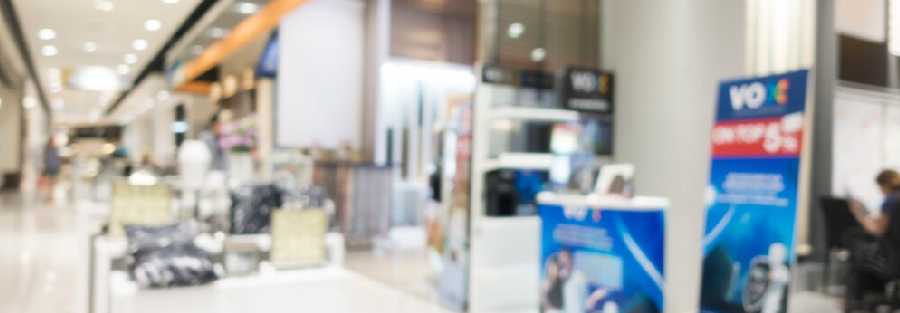The retail industry is undergoing a massive transformation with the adoption of IoT in retail. From smart inventory tracking to AI-powered customer engagement, IoT is enhancing operational efficiency, security, and automation.
Retailers are now implementing cloud-based CCTV, real-time analytics, and automated checkout systems to stay competitive. This blog will explore:
- What IoT in retAIl is and how it works
- The key use cases and benefits of IoT in retail
- Emerging trends shaping the future of IoT in retail
- Challenges and considerations for IoT in the retail sector
What is IoT in Retail?
IoT in Retail refers to the use of smart devices, sensors, and AI-powered solutions to optimize retail operations. These connected devices collect and analyze data in real time, helping businesses enhance customer experience, security, and efficiency.
Common Applications of IoT in the Retail Sector:
- RFID tags & smart shelves – Reduce stockouts and improve inventory tracking
- Automated checkout systems – Enable cashier-less transactions
- AI-driven customer analytics – Provide personalized recommendations
- Cloud-based security solutions – Enhance theft prevention
- IoT-powered energy management – Optimize electricity and HVAC usage
With IoT in retail, businesses can reduce costs, prevent losses, and deliver seamless shopping experiences.
Key Use Cases of IoT in the Retail Industry
1. Smart Inventory Management
Retailers lose billions due to inefficient inventory tracking. With IoT in retAIl, smart inventory systems use RFID sensors and AI-powered analytics to:
- Prevent stock shortages
- Automate reordering processes
- Track inventory in real-time
Major retailers like Walmart and Amazon have adopted IoT in the retail sector to optimize inventory across multiple locations.
2. Personalized Customer Experience
Retailers use AI-powered IoT solutions to analyze shopping behavior and offer personalized recommendations. Examples include:
- Beacons and sensors – Deliver targeted offers to shoppers’ smartphones
- Smart mirrors – Allow virtual try-ons in fashion stores
- AI-driven POS systems – Suggest complementary products
3. Automated Checkout Systems
With IoT in retail, businesses are eliminating long checkout lines by implementing:
- Self-checkout kiosks – Used by Walmart and Target
- Amazon Go’s Just Walk Out technology – Customers walk out with items, and payment happens automatically
This reduces wait times and improves customer satisfaction.
4. Supply Chain Optimization
IoT in the retail sector enhances logistics with:
- Real-time GPS tracking – Monitors shipments across supply chAIns
- Smart temperature monitoring – Ensures food and pharmaceutical products remain fresh
- Automated fleet management – Optimizes delivery routes
5. Energy Management in Retail Stores
Retailers spend heavily on energy consumption. IoT-powered HVAC and smart lighting systems:
- Automatically adjust brightness based on foot traffic
- Optimize heating and cooling for energy efficiency
- Reduce electricity costs significantly
6. Security and Theft Prevention
Retailers use IoT-enabled security solutions such as:
- Cloud-based CCTV surveillance – Provides remote monitoring
- AI-powered theft detection – Identifies suspicious behavior in real-time
- Intrusion Alarm for Retail – Sends instant alerts to prevent break-ins
- Security system for Retail Store – Enhances theft prevention
Benefits of IoT in the Retail Industry
1. Operational Efficiency
With IoT in retAIl, businesses automate inventory tracking, reduce errors, and optimize supply chains for higher efficiency.
2. Enhanced Customer Engagement
IoT-powered digital signage, AI-driven POS recommendations, and beacon marketing deliver personalized shopping experiences.
3. Cost Reduction
Retailers reduce operational costs through:
- Automated workflows – Reducing labor expenses
- IoT-enabled energy management – Lowering electricity consumption
- Smart surveillance – Eliminating the need for manual monitoring
4. Improved Security
IoT-enabled security solutions like Intrusion Alarm for Retail and Security system for Retail Store provide real-time alerts and automated deterrence to prevent losses.
Trends Shaping the Future of IoT in Retail
1. AI & Machine Learning in IoT RetAIl Systems
Retailers are leveraging AI-powered IoT analytics to predict customer preferences and optimize inventory.
2. 5G-Powered IoT Connectivity
The adoption of 5G technology will enable real-time IoT in retail sector applications, reducing latency and improving data transmission speeds.
3. Blockchain & IoT Integration
Retailers are using blockchain-powered IoT to enhance supply chain transparency and security.
4. Sustainability & Green IoT Solutions
Retailers are adopting energy-efficient IoT solutions to reduce their carbon footprint.
5. Autonomous Retail Stores
Cashier-less stores like Amazon Go represent the future of IoT in retail, where smart sensors, AI, and IoT work together to automate the shopping experience.
Challenges and Considerations in IoT Adoption
1. Data Privacy & Security
Retailers must implement cybersecurity solutions to prevent data breaches and protect customer information.
2. High Initial Investment
Deploying IoT in retAIl requires a significant investment in smart sensors, AI solutions, and cloud-based security infrastructure.
3. Integration with Legacy Systems
Many retailers struggle with integrating IoT solutions into outdated POS and security systems. Upgrading infrastructure is essential for seamless adoption.
Conclusion
The impact of IoT in retail is undeniable. Businesses investing in AI-driven analytics, cloud-based security, and automated inventory tracking are future-proofing their operations.
Retailers must embrace IoT in retail sector solutions to stay competitive, optimize efficiency, and enhance customer experiences.
The future of IoT in retail is here. Businesses that adopt smart solutions will thrive in the evolving retail landscape.



